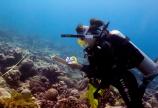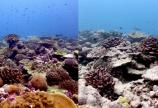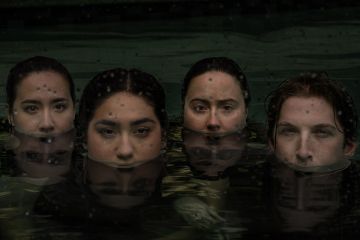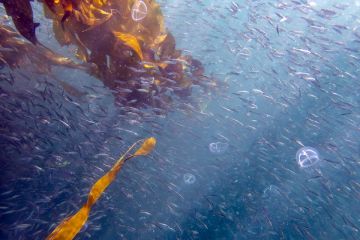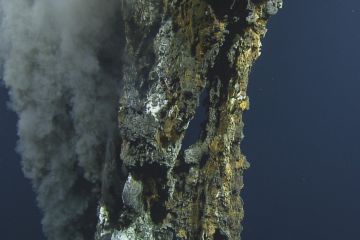Local stressors intensify effects of unprecedented marine heatwave on corals
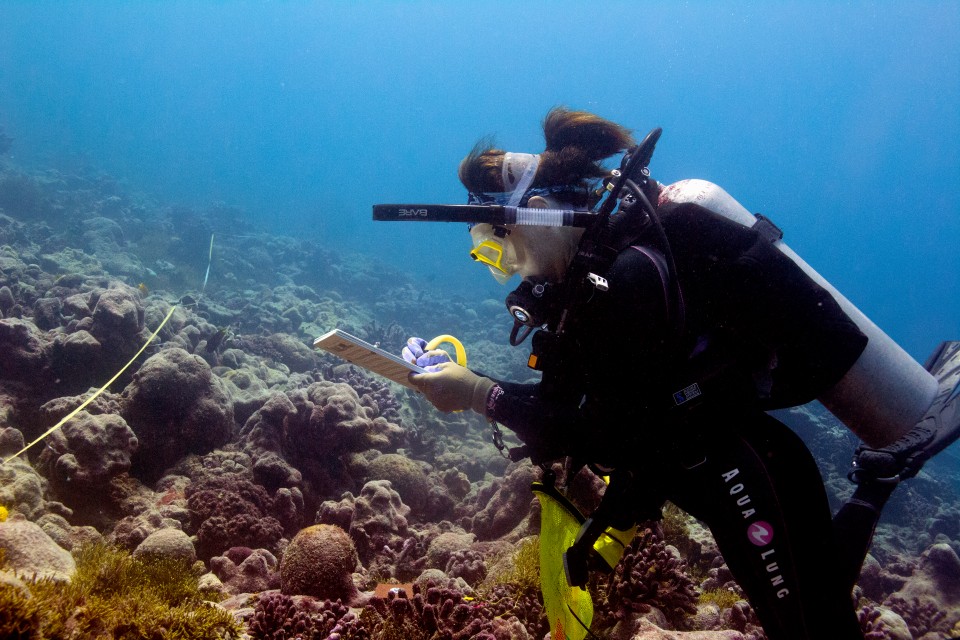
Marine heatwaves triggered by climate change pose an imminent threat to the world’s coral reefs. But most reefs are also exposed to local stressors, ranging from coastal development, pollution and overfishing. Few studies take into account how stressed-out reefs respond to heatwaves until now.
A groundbreaking five-year study tracking hundreds of corals through a globally unprecedented heatwave now shows that individual coral species fared much better at sites without local stressors. The paper, Transformation of coral communities subjected to an unprecedented heatwave is modulated by local disturbance, was published today by the prestigious journal Science Advances.
The team, led by UVic professor Julia Baum, documented staggering coral mortality as a result of the heatwave: 90 per cent of the island’s coral cover was lost. Surprisingly, however, some coral species fared reasonably well—they came out as relative "winners," losing only 30 per cent of their colonies while 99 per cent of some species perished in the unrelenting heat.
“We might have expected almost complete coral mortality, but instead we found that despite extraordinarily long heat stress, there will still winners and losers,” Baum says.
The study was carried out throughout the 2015-2016 El Niño on the world’s largest coral atoll, Kiritimati (also known as Christmas Island), in the central equatorial Pacific. Because villages and other infrastructure are concentrated at one end of the atoll, reefs around the atoll are exposed to vastly different levels of local stressors, and range from near pristine to highly degraded ones.
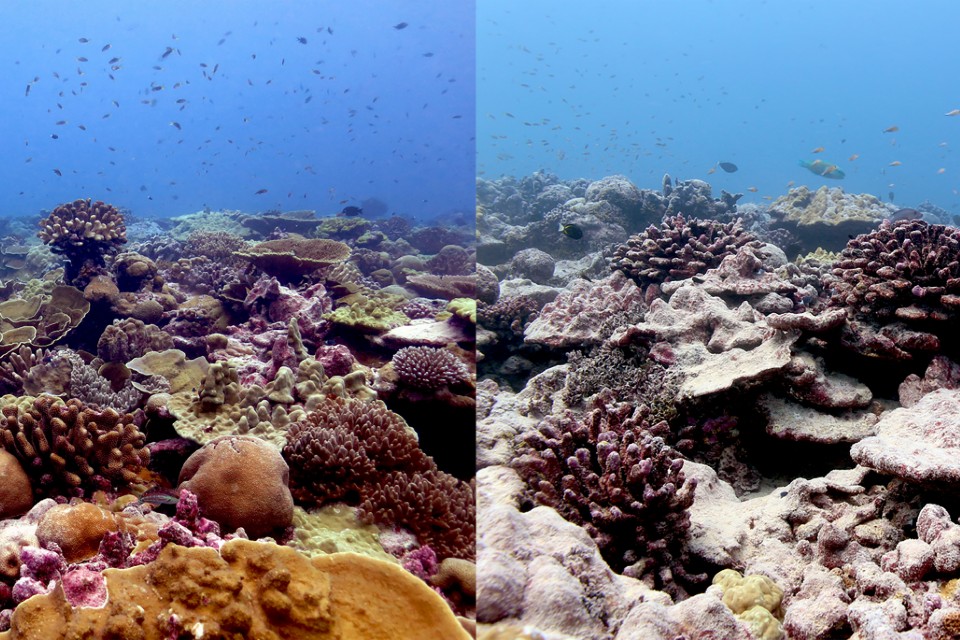
A coral reef site on Kiritimati (Christmas Island) that experiences very low local human disturbance before and after the 2015-16 marine heatwave. Credit: Left: Danielle Claar; Right: Kevin Bruce
Heat stress from that El Niño triggered the third-ever global coral bleaching event, whose epicentre was Kiritimati, where the heatwave lasted an unprecedented 10 months. Corals, which are extremely sensitive to small increases in water temperatures can bleach after as little as four weeks of anomalously high temperatures. Prior to this El Niño, this amount of heat stress was not previously expected to occur on coral reefs until mid-century.
“We also found that survival of coral ‘winners’ was boosted at sites without local stressors,” Baum says, noting that managing local stressors such as water quality, could improve survivorship in future heatwaves and in coral restoration efforts.
“However, what our study really underscores is how important it is for corals to mitigate climate change now, by vastly reducing greenhouse gas emissions,” says Baum. “Local management efforts are important, because every little bit matters right now, but without addressing the root cause of climate change, coral reefs are doomed.”
—Julia Baum, a marine ecologist, conservation biologist and UVic President’s Chair
The Intergovernmental Panel on Climate Change (IPCC) projects that under climate change between 70 and 90 per cent of all reefs could be lost at 1.5C global warming. At 2C warming, 99 per cent may be lost.
Recovery of coral reefs can take decades, and under climate change the interval between successive heatwaves has shortened to the extent that most reefs will not have sufficient time to recover, adds Baum.
Baum’s research reflects UVic’s commitment to the United Nations Sustainable Development Goals, and our role in vital climate action. Read more about UVic’s research impact at uvic.ca/impact.
The research was supported by Natural Sciences and Engineering Research Council of Canada, Canada Foundation for Innovation, British Columbia Knowledge Development Fund, The Pew Charitable Trusts, National Oceanic and Atmospheric Administration, The Rufford Foundation, National Geographic Society and others.
-- 30 --
A media kit containing high-resolution photos and broll video is available on Dropbox.
Photos
Media contacts
Julia Baum (Dept. of Biology) at baum@uvic.ca
Jennifer Kwan (University Communications + Marketing ) at 250-721-7636 or uvicnews@uvic.ca
In this story
Keywords: People Place Planet, community, international, administrative, faculty and staff, climate, environment, sustainability, oceans, funding, biodiversity, SDG14, life below water, SDG13, climate action, SDGs
People: Julia Baum

